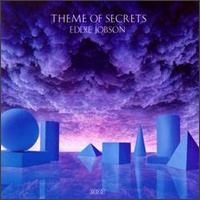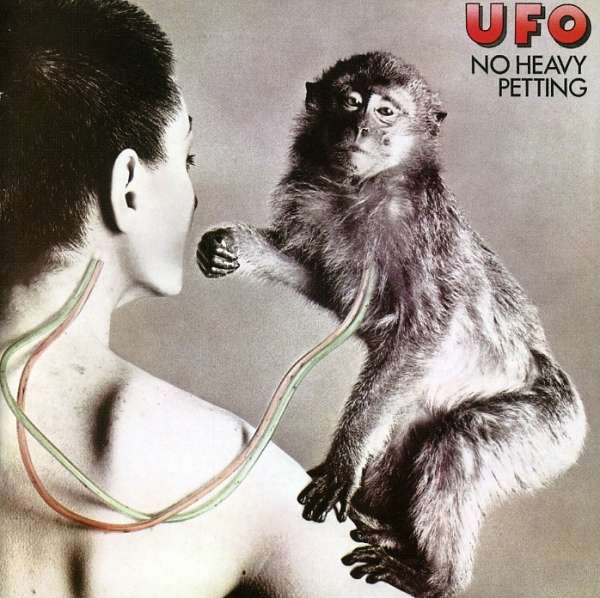/PAlogo_v2.gif)
/PAlogo_v2.gif) |
|
Post Reply 
|
Page 12> |
| Author | ||||||||
micky 
Special Collaborator 

Honorary Collaborator Joined: October 02 2005 Location: . Status: Offline Points: 46843 |
 Topic: 2nd Round Classics: Octopus v. Space Shanty Topic: 2nd Round Classics: Octopus v. Space ShantyPosted: July 25 2015 at 08:49 |
|||||||
|
next up another true heavyweight match..
in the near corner.. Gentle Giant    Reviewed wonderfully by one of the favorite 'new' collabs. Madan!! Reviewed wonderfully by one of the favorite 'new' collabs. Madan!!  
From Progarchives.com, the ultimate progressive rock music website
and in the far corner... one of the greatest albums to come out of the Canterbury movement. reviewed by...   
From Progarchives.com, the ultimate progressive rock music website
|
||||||||
|
The Pedro and Micky Experience - When one no longer requires psychotropics to trip
|
||||||||
 |
||||||||
zravkapt 
Special Collaborator 

Honorary Collaborator Joined: October 12 2010 Location: Canada Status: Offline Points: 6451 |
 Posted: July 25 2015 at 09:08 Posted: July 25 2015 at 09:08 |
|||||||
|
Octopus by a very wide tentacle.
|
||||||||
|
Magma America Great Make Again
|
||||||||
 |
||||||||
Disparate Times 
Forum Senior Member 

Joined: July 12 2015 Location: Rust belt Status: Offline Points: 261 |
 Posted: July 25 2015 at 09:11 Posted: July 25 2015 at 09:11 |
|||||||
Make that two tentacles 
|
||||||||
 |
||||||||
Kirillov 
Forum Senior Member 

Joined: September 03 2011 Location: Wales Status: Offline Points: 700 |
 Posted: July 25 2015 at 09:29 Posted: July 25 2015 at 09:29 |
|||||||
|
I like both GG and Hillage but much prefer other albums of theirs, I'll go for Khan as it needs the votes. Now if the choice had been Acquiring the Taste v Fish Rising I would have seriously struggled to choose!
|
||||||||
 |
||||||||
rogerthat 
Prog Reviewer 
Joined: September 03 2006 Location: . Status: Offline Points: 9869 |
 Posted: July 25 2015 at 09:36 Posted: July 25 2015 at 09:36 |
|||||||
|
Love both but have to go for Octopus. Thanks to micky, I don't have to explain why.

|
||||||||
 |
||||||||
Mellotron Storm 
Prog Reviewer 
Joined: August 27 2006 Location: The Beach Status: Offline Points: 15017 |
 Posted: July 25 2015 at 09:56 Posted: July 25 2015 at 09:56 |
|||||||
|
Khan quite easily.
|
||||||||
|
"The wind is slowly tearing her apart"
"Sad Rain" ANEKDOTEN |
||||||||
 |
||||||||
micky 
Special Collaborator 

Honorary Collaborator Joined: October 02 2005 Location: . Status: Offline Points: 46843 |
 Posted: July 25 2015 at 09:59 Posted: July 25 2015 at 09:59 |
|||||||
|
hahaha... this never gets old..
a harder vote if it had been Acquiring the Taste.. and would have voted for Three Friends. |
||||||||
|
The Pedro and Micky Experience - When one no longer requires psychotropics to trip
|
||||||||
 |
||||||||
GKR 
Forum Senior Member 

Joined: January 22 2013 Location: Brazil Status: Offline Points: 1376 |
 Posted: July 25 2015 at 10:20 Posted: July 25 2015 at 10:20 |
|||||||
|
Octopus. How came Gentle Giant albums are not in the top 10 of PA?
Octopus is such a masterpiece... |
||||||||
|
- From each according to his ability, to each according to his need.
|
||||||||
 |
||||||||
Atkingani 
Special Collaborator 

Honorary Collaborator / Retired Admin Joined: October 21 2005 Location: Terra Brasilis Status: Offline Points: 12291 |
 Posted: July 25 2015 at 10:23 Posted: July 25 2015 at 10:23 |
|||||||
|
The one with a garden where Ringo dived.
|
||||||||
|
Guigo
~~~~~~ |
||||||||
 |
||||||||
ole-the-first 
Forum Senior Member 

Joined: January 03 2012 Location: Russia Status: Offline Points: 1534 |
 Posted: July 25 2015 at 10:26 Posted: July 25 2015 at 10:26 |
|||||||
|
Gentle Giant
|
||||||||
|
This night wounds time.
|
||||||||
 |
||||||||
sleeper 
Prog Reviewer 

Joined: October 09 2005 Location: Entropia Status: Offline Points: 16449 |
 Posted: July 25 2015 at 10:27 Posted: July 25 2015 at 10:27 |
|||||||
|
||||||||
|
Spending more than I should on Prog since 2005

|
||||||||
 |
||||||||
The Bearded Bard 
Special Collaborator 

Honorary Collaborator Joined: January 24 2012 Location: Behind the Sun Status: Offline Points: 12859 |
 Posted: July 25 2015 at 11:06 Posted: July 25 2015 at 11:06 |
|||||||
|
If it had been any other of GG's first seven albums than Octopus, which is my least favourite of those, this would've been harder. But since it's not this is an easy vote for Space Shanty, which would win this on album art alone. A space ship with green moss-like spots on it...makes my imagination of what these space pirates' been up to go wild!
|
||||||||
 
|
||||||||
 |
||||||||
dr wu23 
Forum Senior Member 

Joined: August 22 2010 Location: Indiana Status: Offline Points: 20712 |
 Posted: July 25 2015 at 11:33 Posted: July 25 2015 at 11:33 |
|||||||
|
Khan for me...I simply enjoy listening to it more than Octopus. But then I have never been a huge fan of GG who I always thought were too 'quirky' for their own good.
|
||||||||
|
One does nothing yet nothing is left undone.
Haquin |
||||||||
 |
||||||||
Pastmaster 
Forum Senior Member 

Joined: January 23 2015 Location: Spiderwood Farm Status: Offline Points: 1774 |
 Posted: July 25 2015 at 11:35 Posted: July 25 2015 at 11:35 |
|||||||
|
Gentle Giant of course!

|
||||||||
 |
||||||||
akaBona 
Forum Senior Member 

Joined: September 15 2010 Location: Finland Status: Offline Points: 2082 |
 Posted: July 25 2015 at 14:59 Posted: July 25 2015 at 14:59 |
|||||||
|
Gentle Giant
|
||||||||
 |
||||||||
Moogtron III 
Prog Reviewer 

Joined: April 26 2005 Location: Belgium Status: Offline Points: 10616 |
 Posted: July 25 2015 at 15:10 Posted: July 25 2015 at 15:10 |
|||||||
|
Difficult, holding my vote here for a while...
|
||||||||
 |
||||||||
Andrea Cortese 
Special Collaborator 

Honorary Collaborator Joined: September 05 2005 Status: Offline Points: 4411 |
 Posted: July 25 2015 at 15:43 Posted: July 25 2015 at 15:43 |
|||||||
|
GG for me thanks
|
||||||||
 |
||||||||
Olape 
Forum Senior Member 
Joined: July 28 2013 Location: Chile Status: Offline Points: 2446 |
 Posted: July 25 2015 at 17:29 Posted: July 25 2015 at 17:29 |
|||||||
|
Gentle Giant!!!
|
||||||||

|
||||||||
 |
||||||||
Wanorak 
Forum Senior Member 

Joined: December 09 2006 Location: Canada Status: Offline Points: 4574 |
 Posted: July 25 2015 at 18:52 Posted: July 25 2015 at 18:52 |
|||||||
|
Octopus.
|
||||||||
|
A GREAT YEAR FOR PROG!!!
|
||||||||
 |
||||||||
Tom Ozric 
Prog Reviewer 

Joined: September 03 2005 Location: Olympus Mons Status: Offline Points: 15926 |
 Posted: July 25 2015 at 20:17 Posted: July 25 2015 at 20:17 |
|||||||
|
Space Shanty by a flea's tooth.
|
||||||||
 |
||||||||
Post Reply 
|
Page 12> |
| Forum Jump | Forum Permissions  You cannot post new topics in this forum You cannot reply to topics in this forum You cannot delete your posts in this forum You cannot edit your posts in this forum You cannot create polls in this forum You cannot vote in polls in this forum |